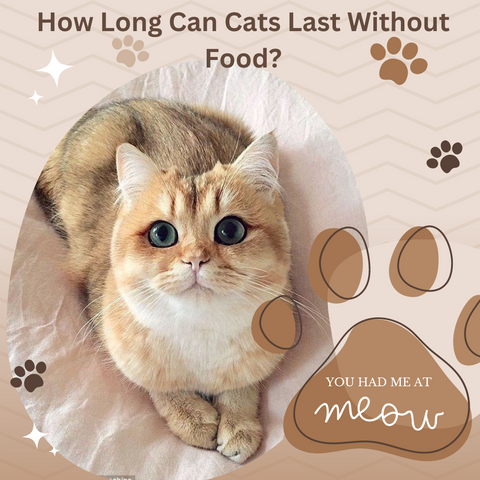Cats are famous for being able to take care of themselves, but they still need help from their owners to stay healthy. Food is crucial for any living thing, including cats. So, what happens if they don't get it? Cats are demanding but can only go with food for as long as other animals can. Usually, a healthy cat can manage about 1-2 weeks without food. However, this can change depending on the cat's health, age, etc. Let's take a closer look at this!
The Risks When Your Cat Stops Eating
When a cat don't want to eat, it can cause significant health problems. If a cat goes without food for too long, it might develop something called hepatic lipidosis, or fatty liver disease. This can be really dangerous and needs a vet's help right away. Also, not eating for a long time can weaken a cat's immune system, making it easier for them to get sick.
Reasons Why Your Cat Might Not Be Eating
Many things can make a cat not want to eat. Finding out why is crucial in helping them feel better.
- Dental Problems: Like people, cats can have issues with their teeth, such as decay or gum disease. This can make eating painful or complicated for them.
- Being Sick: If a cat is sick with an infection, kidney problems, diabetes, or tummy troubles, it might not feel like eating. These illnesses can really affect how hungry it is.
- Feeling Stressed: Cats are sensitive creatures, and changes at home, new pets, loud noises, or even just a different routine can cause them to lose their appetite.
- Fussy Eating Habits: Some cats are picky about their food. They might turn their nose up at it if they don't like the taste or texture. Also, sudden changes in their eating can put them off their food.
Knowing these reasons can help cat owners figure out why their furry friend isn't eating and take steps to help them feel better.
How To Get Your Cat To Eat
If you're waiting for a vet appointment or trying to help your cat eat within the first day, there are some things you can try.
- Keep Her Hydrated: Make sure your cat is drinking plenty of water. If she's not, try adding a bit of low-sodium chicken broth or tuna juice to her water. If that doesn't work, try giving her small amounts of water or Pedialyte with a syringe every two hours.
- Tempt Her with Food: Try offering your cat different food than usual. white rice with yogurt, Boiled chicken, or meat-flavored baby food can be good options. Sometimes, changing the food can encourage her to eat again. Cats often prefer warm food over cold, so try warming it up a bit to see if she likes it better.
- Provide a Quiet Eating Space: Make sure your cat's eating area is calm and quiet, as cats don't like loud noises. Also, keep her food and water bowls clean because she might avoid eating or drinking from dirty dishes.
While cats can survive without food for a while, it's not recommended. If your cat stops eating or drinking, take her to the vet as soon as possible to determine the problem and fix it.
What Happens If Cats Don't Eat For A Few Days?
If your cat suddenly stops eating and it's been more than a day, contact your vet. Not eating could mean your cat is sick, so it's crucial to have it checked out.
We hope this information on how long cats can last without food has been helpful. If you're worried about your cat's eating habits, always consult your vet for treatment and advice to stop things from worsening.
For more guidance on feeding your cat, check out our other feeding tips and our cat nutrition guide.







